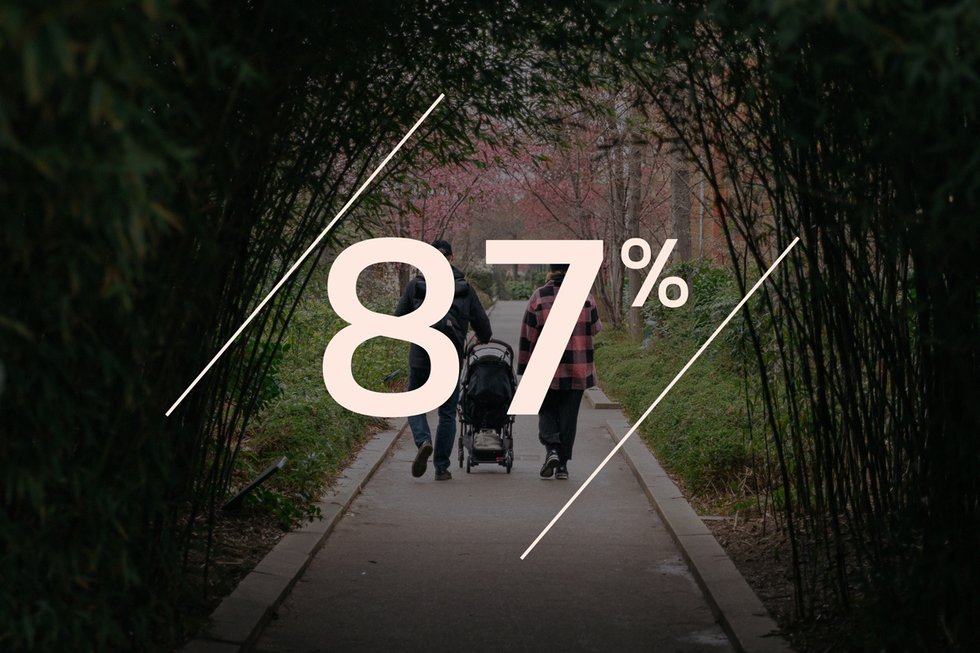87% of parents have no desire to return to pre-pandemic ways of working
Jul 08, 2020
3 mins


Writer and editor
We have heard a lot about frazzled working parents during the lockdown. Trying to juggle working from home with your kids around is no mean feat. Throw in the pressure of homeschooling, and it’s little wonder that social media exploded with viral posts titled “Why Mummy drinks”. If there’s one positive to come out of the coronavirus, it’s that this change in routine, forced on thousands of families during the lockdown, has made them reassess their work-life balance. Despite the pressure of the past few months, a recent UK study shows that only 13% of parents want to return to pre-pandemic ways of working.
It’s hardly surprising that the results of the study, by Bright Horizons—a nursery and work and family solutions provider for employers—showed parents don’t want to return to the daily grind. Simply getting yourself to work when you have children is a military operation. Before you even start your working day, you have to get the little people up, dressed, and fed, make packed lunches, bribe them to clean their teeth, and get them to crèche, the childminder, or school on time. Remember, you have to be office-ready, too – that means no porridge smeared on your shirt.
Why remote working rules
The report, Engaging Working Parents in the New Normal, captured the views of 1,500 working parents in April and May. It showed that most of them (55%) would choose to spend no more than three days in the workplace with the rest spent remotely after getting the opportunity to give it a go. Claire Brown, an operations manager for a pharmaceutical company and mother of two, had the chance to work remotely for the first time during the lockdown. “I had never worked from home before,” she said. “At the start, it was four days at home and one in [the office] on my own, but we have gradually changed to two days on-site. This works for me. I need to be on-site to liaise with staff, but I’ve realized I don’t have to be there all of the time.”
Brown says that working remotely for part of the week has helped her work-life balance immensely. She said, “If I want I can log off at 5 pm and I’m straight downstairs to do the dinner and help with the kids.”
A sea change in the way we work
The survey showed that many parents are eager for agile or remote working to continue. Almost half (48%) of those who were previously office-based are considering asking their employers if this might be possible on a permanent basis. Meanwhile, 63% of respondents believe their employers will be more open to remote, agile, or flexible working in the future.
Brown’s company has already agreed to this without employees having to pluck up the courage to ask. “We are going to embrace remote working in the company,” she said. “It worked well for us from both perspectives. Everyone took to it and there was no drop in productivity.”
Jennifer Liston-Smith who led the study said, “The symbiotic relationship between employers’ need for employees to be productive and employees’ commitments around the child and elder care has been visible in a way they never were before.”
What does it mean for productivity?
Richard Thompson, a graphic designer has seen his productivity increase since he started working from home. He is happy to put in the hours when he doesn’t feel tied to the office. “I find myself putting in extra time but I don’t mind,” the father of three said. “I save time because I’m not commuting and I get to see my kids more. It’s a win-win situation. I’m not sure how long it’s going to continue but I’m making the most of it.”
This seems to be the sentiment in the majority of cases. The Bright Horizons survey revealed that more than half (53%) of working parents believe greater flexibility would increase productivity and 58% say it would increase their loyalty. What’s more, 79% indicated that flexible or agile working would have a positive impact on their well-being.
Interestingly, there is not such a strong desire to reduce working hours. Three out of four of those surveyed said they didn’t want to drop their hours. Common reasons given included high job satisfaction, negative financial impact and they would end up doing the same work in less time for less money. It seems the “new normal” is about flexibility, not working less.
But Liston-Smith warned, “Remote and flexible working alone will not provide the solution, employers need to actively engage with providing support, not passively allow employees to have some additional flexibility. This is a time for employers to step forward and challenge themselves about the employee support they offer.”
Photo: Welcome to the Jungle
Follow Welcome to the Jungle on Facebook, LinkedIn, and Instagram, and subscribe to our newsletter to get our latest articles every day!

More inspiration: Work trends

Workplace influencers: How employee-generated content is changing the game
Who says becoming an influencer means quitting your day job?
Dec 05, 2024

The rise of homeless workers: A hidden crisis fueled by soaring costs
The rising cost of living is putting individuals on the brink of homelessness, even those with full-time jobs ...
Nov 21, 2024

The emotional toll of quitting in Japan—and the role of professional quitters
In Japan, quitting a job transcends professional boundaries, often becoming a deeply emotional and cultural challenge.
Nov 20, 2024

RTO or risk: Are return-to-office mandates harming company culture?
Flexible work policies have become a core expectation for employees and workers are viewing RTO mandates as restrictive.
Oct 30, 2024

Why are workers quitting after getting promoted?
29% of promoted employees quit within six months of their promotion—but why?
Mar 13, 2024
The newsletter that does the job
Want to keep up with the latest articles? Twice a week you can receive stories, jobs, and tips in your inbox.

Looking for your next job?
Over 200,000 people have found a job with Welcome to the Jungle.
Explore jobs